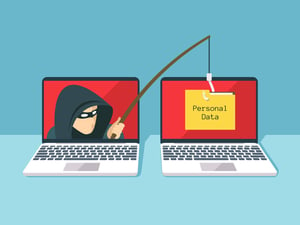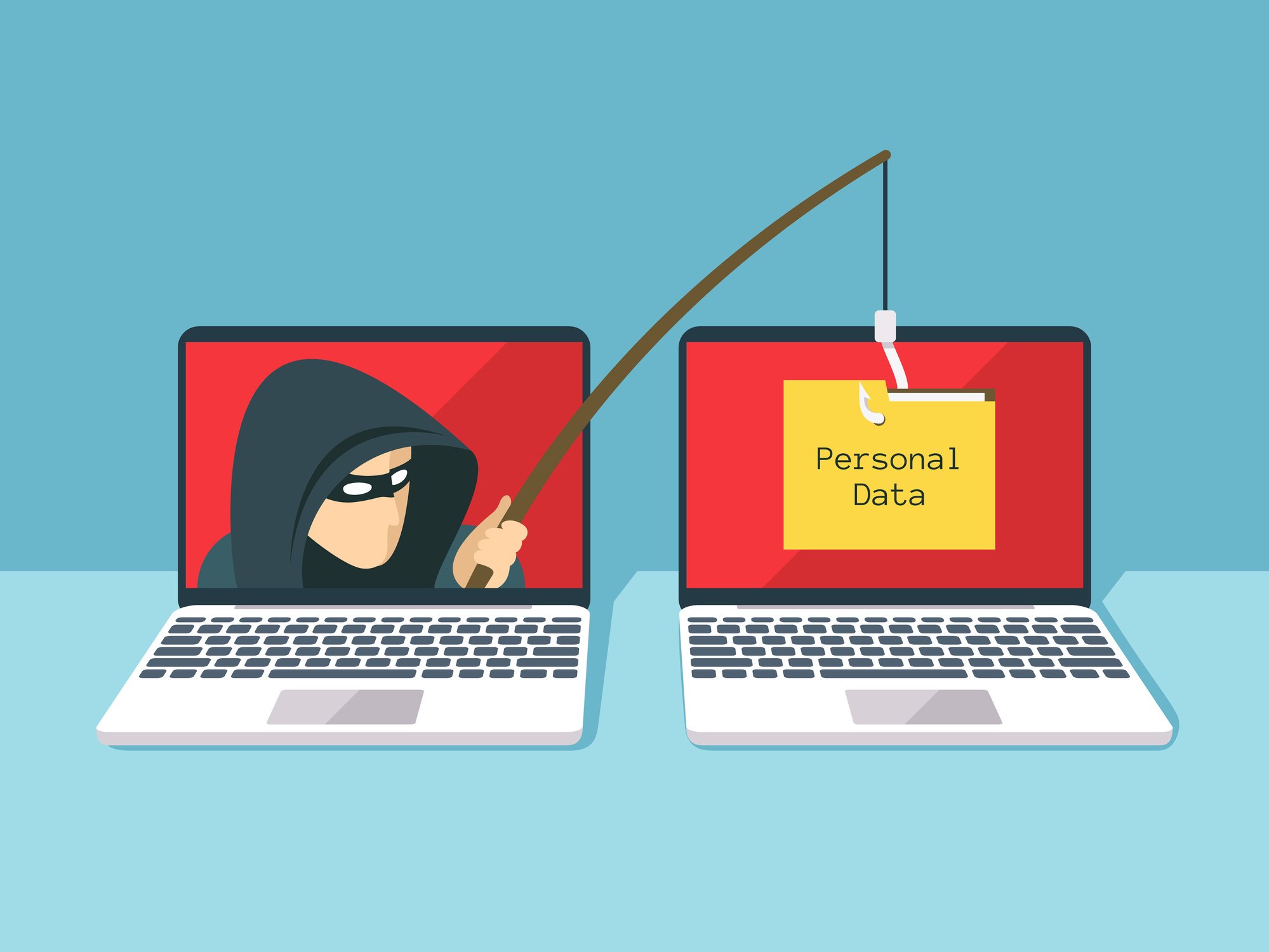 Crooks are creative. While they may lack other qualities like honesty and integrity, they certainly apply themselves when it comes to swindling people out of their hard-earned money. If you don't stay up to date on current scam trends you might just get taken advantage of. Did you know there are actually scammers going door to door dressed as utility workers and demanding payment for overdue bills? That's pretty bold, and a little scary.
Crooks are creative. While they may lack other qualities like honesty and integrity, they certainly apply themselves when it comes to swindling people out of their hard-earned money. If you don't stay up to date on current scam trends you might just get taken advantage of. Did you know there are actually scammers going door to door dressed as utility workers and demanding payment for overdue bills? That's pretty bold, and a little scary.
What about "Smishing" have you heard of that one?
Then of course, there are people who prey on the vulnerable, especially during crises like a pandemic, watch out for them!
How do you avoid scams like this at your Chico apartment? Read on...
Utility Scams
Phone scams for utilities are becoming more common. You get a call from someone saying they are with the power company, or your cable company and that you have an overdue bill. Their number might even look like a legitimate number. They will pressure you to make an immediate payment to avoid service shutoff. Don't do it!!! They often ask for a credit card number, or offer payment options via wire transfer or a prepaid debit card. If you are at all suspicious of a call you receive, just hang up and call your utility company directly. They can verify if there is actually any issue on your account, and that way you know you are dealing with the right company.
Some crooks have become bold enough to conduct this scam in person. They show up in a uniform knocking at your door. They will say they are from the utility company, they might even have a patch with the logo and a clipboard to add credibility. Don't give them any information and don't let them into your apartment unless you scheduled this appointment yourself or were notified by your property manager in advance. If you get any kind of weird vibe from them, just say, "This is the first I'm hearing of this and I will need to confirm it with the utility company. Please wait outside while I call them to verify." Any legitimate utility employee will be fine with that and stick around. The scammers will act annoyed and impatient and try to pressure you, don't cave in. Odds are when you open the door again, they will be gone. Make sure to report these incidents to your property manager as well as your utility company.
Text Scams AKA "Smishing"
Most people have heard of "Phishing" scams via email. The new trend in scams is text scamming or "Smishing", meaning a phishing scam done via SMS message. In this scam, you will get a text message that appears to be from your cellular service provider, or your bank or any entity that you do business with. It will inform you about an urgent need or threat to your account like "Your account may have been compromised" or "unauthorized access." It may say that your account has been frozen. Often it will request a response, or supply a link to click. Don't touch anything! By responding you will show them that this is an active number and only encourage more scam attempts. Clicking a link can install malware on your phone that collects personal data.
Here are some great tips from ThoughCo about how to deal with smishing scams:
- None of the government agencies, banks, or other legitimate businesses will ever request personal financial information via text messages.
- Take your time. Smishing scams work by creating a false sense of urgency by demanding an immediate response.
- Never click on any links or call any phone numbers in unsolicited text or email messages.
- Don’t respond in any way to smishing messages, even to ask the sender to leave you alone. Responding verifies that your phone number is active, which tells the scammer to keep trying.
- Delete the message from your phone.
- Report the suspect message to your cell phone service carrier's spam/scam text reporting number or general customer service number.
[Read the full article from ThoughtCo here]
COVID-19 Scams
COVID-19 has brought a number of problems and struggles this year, among them are more ways for scammers to get your money. The U.S. Department of the Treasury put out a statement saying, “If you receive calls, emails, or other communications claiming to be from the Treasury Department and offering COVID-19 related grants or stimulus payments in exchange for personal financial information, or an advance fee, or charge of any kind, including purchase of gift cards, please do not respond.” They go on to say that you should contact the FBI so they can be tracked and stopped.
Sadly, just trying to get you hand over money to receive a grant or stimulus check isn’t the only way people are getting scammed during this pandemic. USA Today wrote an article on 10 more ways COVID-19 scams are spreading and people are sadly falling for, especially those wanting a cure ASAP.
Email Scams - "Phishing"
Email scams still haven't gone out of style. Although email service providers are getting much better at filtering them out, some scams still get through. If a friend's email gets hacked it will appear to be a legitimate message coming in and your email service provider may have no way of knowing.
Remember the one about the Nigerian Prince? He contacts you out of the blue and needs your help transferring his vast wealth out of Nigeria and is willing to pay you handsomely for your help. They just need your bank account info and maybe a social security number to do so. Or they might ask you to send money to cover taxes, but that's nothing compared to the $10,000 that you are promised to be paid!
As old as this scam is, it's still profitable for some internet thieves, and there are always new variations on this same idea popping up. The Better Business Bureau has a detailed explanation of this scam and the modern twist that some scammers are putting on it.
Other common email scams are the mysterious, "You've Won! Click here to claim your prize" emails. They are very enticing because who doesn't like winning free stuff? A free iPad was a pretty common one a few years back. Some people click before they take the time to think, "Wait, I never signed up to win anything." Clicking the link can install malware on your computer, or you might be told you just have to pay for shipping to get your free stuff. Only, it will never show up, and now they have your credit card info.
One more popular email scam, is when a friend's email gets hacked, they send you a message, that appears to be from your friend's email address, and tells a sad story of how they were travelling in a foreign country and were mugged, losing all of their money and their passport. They are stuck there with no way to get out and just need your help so they can pay for a hotel and buy some food while all this gets sorted out. The writing will be very detailed and convincing in some cases, but take a step back before you react and think, would my friend really send me this email? A quick text to your friend will usually resolve the issue. They can verify that they are safely at home and have never been to Uruguay.
Tax Scams
There are a variety of ways that scammers take advantage of tax season. They make phony calls and send emails posing as IRS staff and trying to mine personal information. Keep in mind, the IRS rarely calls anyone. Here's a list from the IRS of 6 things scammers will try over the phone that the IRS would NEVER do.
- Call demanding an immediate payment. The IRS won’t call taxpayers if they owe taxes without first sending a bill in the mail.
- Demand payment without allowing taxpayers to question or appeal the amount owed.
- Demand that taxpayers pay their taxes in a specific way, such as with a prepaid debit card.
- Ask for credit or debit card numbers over the phone.
- Threaten to contact local police or similar agencies to arrest taxpayers for non-payment of taxes.
- Threaten legal action, such as a lawsuit.
Here's another variation on the tax scam from Wired, in which a thief will use your personal information to file a fraudulent tax return before you ever get the chance to do it yourself. The government actually deposits the money in your account and then the thief contacts you telling you it was a clerical error on the government's part and you need to transfer the money back. Since you hadn't actually filed your taxes yet, this makes sense. Some people are quick to transfer the money wherever the scammer tells them to avoid getting in trouble with the Federal Government. By the time they figure out what happened, the money is gone.
Vacation Rental Scams - Airbnb, VRBO etc.
Here's a new one for you. You are travelling somewhere and are looking to book a rental home with Airbnb or VRBO or one of those peer-to-peer property rental sites. You find a great looking place for the right price and it says it's available. However, after you book it, you get an email apologizing and letting you know that unfortunately the home had already been rented. But you're in luck, they have another rental property just like this one right down the road. Take a close look at the email address. Is it still coming through Airbnb or whatever site you were using? If they send you links to outside websites in an email be very skeptical. Sites like Airbnb forbid this kind of behavior, but can't fully regulate it. If you're not careful, you'll book and pay for a rental property that doesn't even exist.
Stay Informed and Spread the Word
New scams and variations on old ones pop up every year. The best way to avoid them is to stay up to date on current scam trends. The Federal Trade Commission actually has a system that allows you to sign up to get scam alerts via email. You can also review a current list of their most recent scam alerts here. If you are exposed to a new or unfamiliar scam, tell your friends and neighbors to watch out for it. You just might save them from an bad situation.
Looking for a new place to call home? Check out our available rentals in Chico, Redding, and the surrounding areas today!










